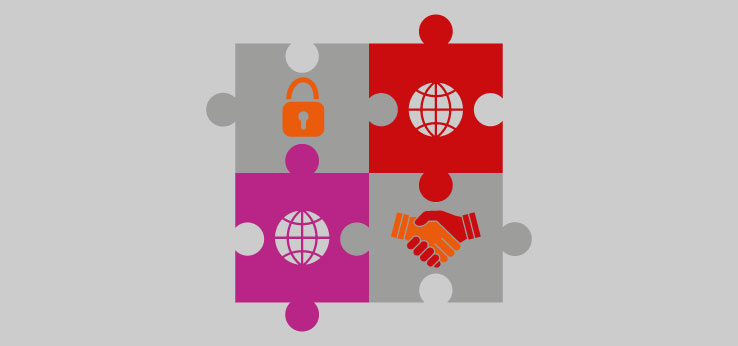Security and Ethics in International Collaboration
With the guidelines on security, ethics and compliance in international inter-institutional collaboration, TH Köln is striving for its aim to further promote and expand internationalization while, at the same time, fulfilling its obligation to protect both the university as an institution and its members from possible risks and dangers.
Complete guidelines
International collaboration between universities promotes global exchange in research and teaching and helps build bridges between countries. At the same time, however, it also poses security-related risks, such as scientific espionage or dual use of research results for military purposes. The core values that apply at TH Köln, especially academic freedom, are not self-evident among all actors in the global science system.
To actively address these challenges and enable international collaboration in a secure and cooperative environment, the Executive Board has commissioned TH Köln’s Departments of International Affairs, of Research and Knowledge Transfer and of Finance to draw up "Guidelines on security, ethics and compliance in international collaboration”. These guidelines support the members of TH Köln in safely carrying out international activities within the framework of a dynamic, multipolar world order and changing legal conditions.
The Centre for International Academic Cooperation (KIWi) of the German Academic Exchange Service (DAAD) also deals with the topic of "Scientific cooperation under complex conditions" and, with the KIWi Compass No Red Lines, provides universities with a framework for independently assessing the opportunities and risks in cooperation with international partners.
As a general rule, TH Köln does not permit the conduction of projects with, and work-related visits to, countries against which far-reaching embargoes are in force:
| Belarus |
| Iran |
| Libya |
| Myanmar (Burma) |
| North Korea |
| Russia |
| Syria |
| Venezuela |

